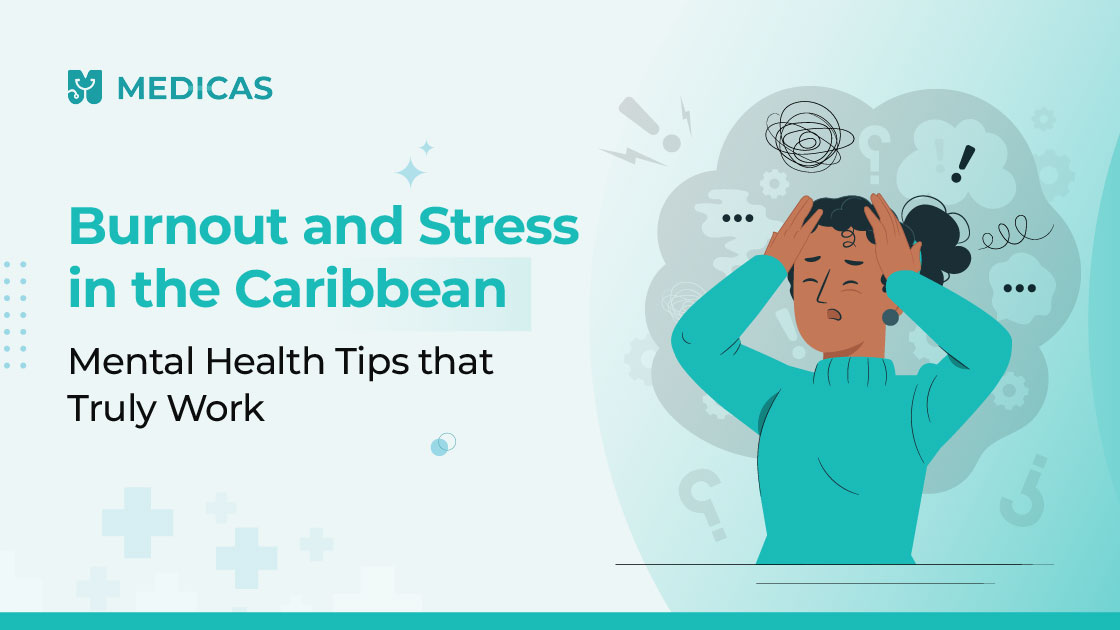Understanding Stress and Burnout
Stress is a natural response to life’s demands, often presenting as emotional or physical tension. While short-term stress can motivate us, prolonged stress can lead to burnout—a state of emotional, mental, and physical exhaustion. In my practice, I’ve seen how unrecognized stress can impact daily life, making early detection is critical for effective stress management. Common signs of stress and burnout include:- Persistent fatigue, even after rest
- Irritability or frequent mood swings
- Difficulty concentrating or making decisions
- Sleep issues, such as insomnia or excessive sleeping
- Physical symptoms like headaches, muscle tension, or digestive discomfort
- Changes in appetite or weight
- Feelings of detachment or reduced motivation
Effective Stress Management at Home
Creating a supportive home environment is a cornerstone of how to manage stress and burnout at home. Based on my work with clients in Chaguanas and St. Augustine, I recommend the following evidence-based strategies to foster mental wellness:- Establish a Consistent Routine: Structure your day to include regular exercise (e.g., 30 minutes of walking), balanced meals, and 7–8 hours of sleep. A predictable schedule supports mental and physical health.
- Practice Relaxation Techniques: Incorporate deep breathing (inhale for 4 seconds, hold for 4, exhale for 6), meditation, or progressive muscle relaxation to reduce tension. These can be done in just 5–10 minutes daily.
- Designate a Relaxation Space: Create a calm area at home, free from work-related items, for activities like reading or mindfulness. This separation enhances work-life balance.
- Engage in Hobbies: Activities such as painting, gardening, or journaling provide a creative outlet to unwind. Even short bursts of 15 minutes can be rejuvenating.
- Limit Digital Exposure: Reduce screen time, particularly before bed, to improve sleep quality and mental clarity.
Caribbean Self-Care Practices for Mental Health
In my years serving the Trinidad and Tobago community, I’ve observed the power of Caribbean self-care practices for mental health. These culturally rooted approaches integrate mind, body, and spirit, offering unique ways to promote wellness:- Nature Connection: Spending time outdoors, whether in a local park or near the coast, lowers stress hormones. A brief 10–15-minute walk in a green space can significantly improve mood.
- Community and Family Ties: Strong social bonds are central to Caribbean culture. Regular interactions with loved ones, such as shared meals or conversations, provide emotional support and reduce isolation.
- Creative Expression: Engaging in music, dance, or art serves as a therapeutic outlet. These activities, whether pursued individually or in groups, foster emotional release and joy.
- Mindfulness and Reflection: Many in the Caribbean incorporate spiritual practices, such as prayer or gratitude exercises, which enhance mental resilience and clarity.
Achieving Work-Life Balance
Achieving work-life balance is critical to preventing burnout and sustaining mental health. In my practice, I often counsel clients on setting boundaries to protect their well-being. Here are practical strategies:- Set Clear Boundaries: Avoid work-related tasks, such as checking emails, outside designated hours. Communicate your availability to colleagues to manage expectations.
- Prioritize and Delegate: Use tools like to-do lists to focus on high-priority tasks. Delegating responsibilities, when possible, reduces feelings of being overwhelmed.
- Incorporate Breaks: Take short 5–10-minute breaks every hour to stretch or step away from screens. A brief walk can boost focus and mood.
- Reserve Personal Time: Schedule time for family, hobbies, or relaxation, treating these as non-negotiable commitments.
- Seek Support: Openly discuss workload concerns with your employer. For additional guidance, consider a Book appointment with a professional to address stress-related challenges.
Practical Tips for Mental Wellness
Small, consistent habits can profoundly impact mental health. Based on my experience, I recommend the following tips for mental wellness:- Practice Mindfulness: Dedicate 5–10 minutes daily to mindfulness, such as focusing on your breath or practicing gratitude, to reduce anxiety and enhance emotional regulation.
- Stay Physically Active: Engage in 150 minutes of moderate exercise weekly, such as walking or yoga, to release endorphins and improve mood.
- Foster Social Connections: Regularly connect with friends or family, even through brief calls or visits, to build a sense of belonging.
- Limit Negative Inputs: Curate your media consumption to avoid distressing content, focusing instead on positive, uplifting sources.
- Prioritize Nutrition and Sleep: Maintain a balanced diet rich in fruits, vegetables, and whole grains, and aim for consistent sleep schedules to support brain health.
- Set Achievable Goals: Break tasks into manageable steps and celebrate small successes to build confidence.
Knowing When to Seek Professional Mental Health Support
As a psychologist, I emphasize that seeking professional help is a sign of strength—not weakness. If you’re experiencing any of the following, it may be time to reach out for support:- Persistent sadness, anxiety, or hopelessness lasting more than two weeks
- Noticeable changes in sleep, appetite, or energy levels
- Difficulty focusing or completing everyday tasks
- Withdrawing from social interaction or losing interest in things you once enjoyed
- Thoughts of self-harm or suicide (please seek immediate help)
The Role of Community in Managing Stress
Community support is a vital component of Caribbean mental health and plays a significant role in managing stress and burnout. In my work, I’ve seen how social connections foster resilience and reduce isolation. Here’s how to leverage community support:- Build Strong Relationships: Connect regularly with family or friends through visits, calls, or shared activities to nurture emotional bonds.
- Engage in Group Activities: Join local organizations, such as volunteer groups or hobby clubs, to cultivate a sense of purpose and belonging.
- Share Experiences: Openly discussing challenges with trusted individuals normalizes seeking support and provides mutual encouragement.
- Contribute to Your Community: Volunteering, even in small ways, enhances self-esteem and strengthens social networks.
Conclusion: Embracing Mental Wellness
As a psychologist operating both in Chaguanas and St. Augustine, I’ve witnessed the transformative impact of proactive stress management and mental health tips. By understanding stress and burnout, adopting Caribbean self-care practices for mental health, and building a strong support system, you can achieve lasting work-life balance and mental wellness. Whether through mindfulness, community engagement, or professional support, every step counts. Take the first step today by implementing one strategy from this guide. If you need further assistance, I’m here to help through my practice. Your mental health is a priority, and you deserve to thrive.Frequently Asked Questions (FAQs)
- What are common signs of stress and burnout? Common signs include persistent fatigue, irritability, difficulty concentrating, sleep disturbances, changes in appetite, headaches, muscle tension, and digestive issues. Early recognition is key to effective management.
- How can I manage stress effectively at home? Create a routine with exercise, healthy meals, and adequate sleep. Practice relaxation techniques like deep breathing or meditation, designate a workspace, and engage in hobbies. Explore home remedies for additional support.
- Are there culturally specific practices in the Caribbean for mental wellness? Yes, Caribbean practices include connecting with nature, engaging in community activities, creative expression through music or dance, and mindfulness-based spiritual practices, all fostering holistic well-being.
- When should I consider seeking professional mental health support? Seek help if you experience persistent sadness, anxiety, or hopelessness, significant changes in sleep or appetite, difficulty concentrating, or social withdrawal. Contact Dr. Leroy Lewis, Psychologist or Book appointment for support.
- What role does community play in managing stress and burnout? Community support reduces isolation, fosters resilience, and provides emotional encouragement. Engage in group activities, share experiences, or volunteer to strengthen social connections and manage stress effectively.
Disclaimer
Medical Advice: The information provided in this blog post is for educational purposes only and should not be considered as a substitute for professional medical advice, diagnosis, or treatment. Always consult with a qualified healthcare professional for personalized guidance regarding your specific medical condition.
Accuracy of Information: While we strive to provide accurate and up-to-date information, the field of medicine and viral fevers is constantly evolving. The content in this blog post may not reflect the most current research or medical guidelines. Therefore, it is advisable to cross-check any information provided with reliable sources or consult a healthcare professional.
Individual Variations: The symptoms, causes, treatment options, and preventive measures discussed in this blog post are general in nature and may not apply to everyone. It is important to remember that each individual’s situation is unique, and personalized medical advice should be sought when making healthcare decisions.
External Links: This blog post may contain links to external websites or resources for additional information. However, we do not endorse or have control over the content of these third-party websites. Accessing these links is done at your own risk, and we are not responsible for any consequences or damages that may arise from visiting these external sources.
Results May Vary: The effectiveness of treatment options or preventive measures mentioned in this blog post may vary from person to person. What works for one individual may not work the same way for another. It is essential to consult with a healthcare professional for personalized advice tailored to your specific needs.

Mr. Leroy Lewis is a holistic psychologist with over 14 years of experience in counselling and mental health care. Based in Chaguanas, Trinidad and Tobago, he is committed to helping individuals overcome emotional challenges and achieve personal growth. With a Master’s in Counselling Psychology and extensive training in trauma, addiction, and employee assistance programs, he blends clinical insight with a compassionate, client-centred approach.


